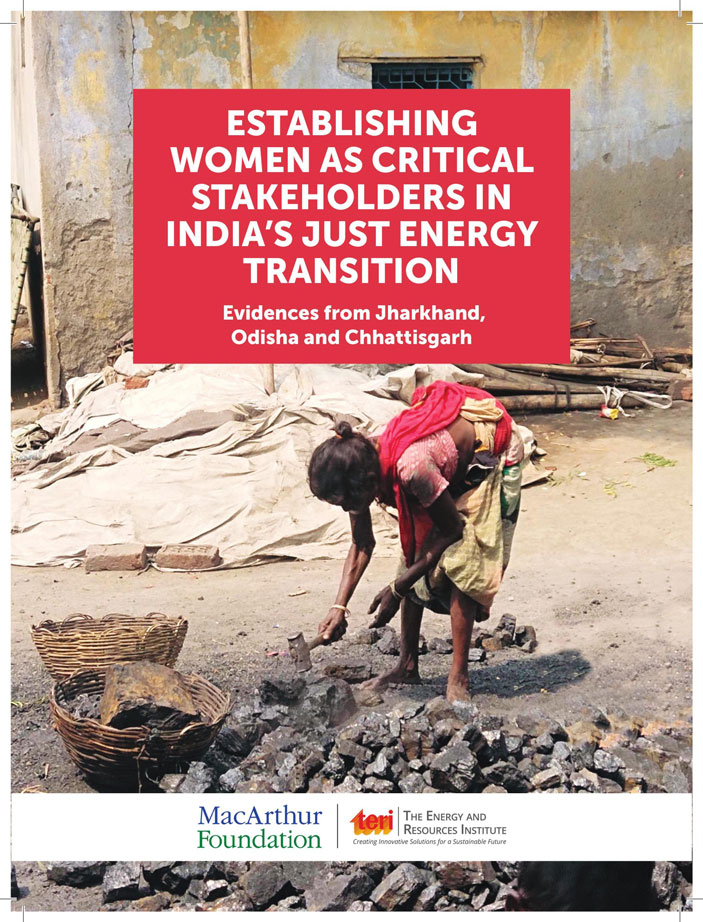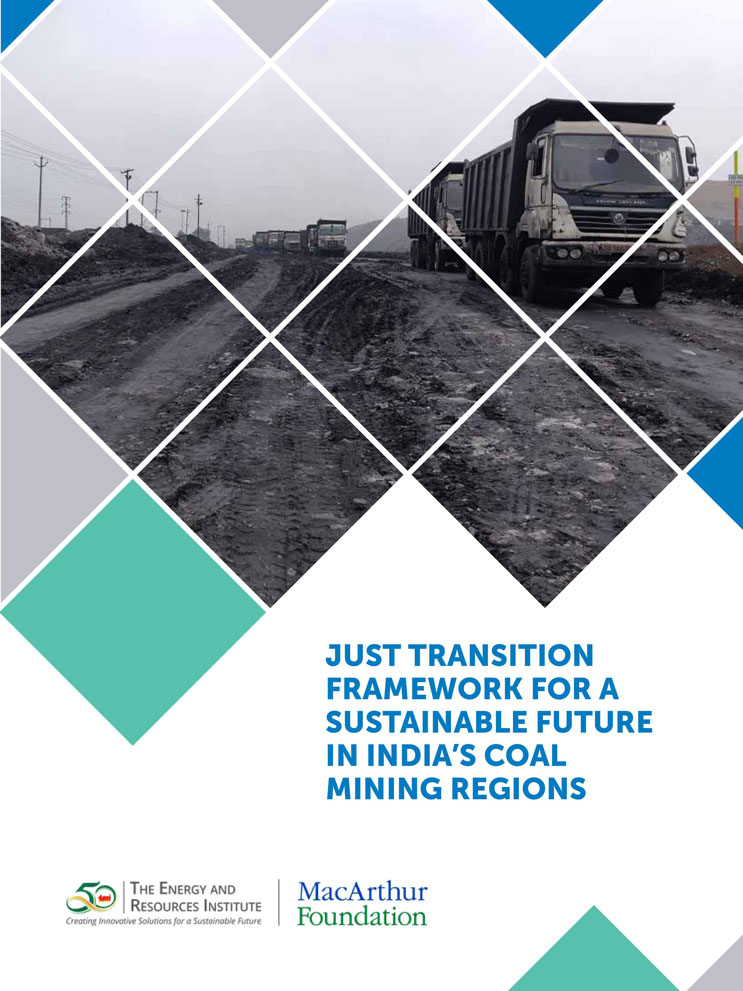ESTABLISHING WOMEN AS CRITICAL STAKEHOLDERS IN INDIA’S JUST ENERGY TRANSITION Evidences from Jharkhand, Odisha and Chhattisgarh
Apoorva Singh, Arpita Victor, TERI Press ![]()
![]()

0 Comments
Coal continues to remain the mainstay of India’s energy portfolio mix. The climate change considerations and the increasing competitiveness of cleaner sources of energy are likely to increase the momentum of the transition towards non-fossil fuel-based sources. According to an estimate, this move would impact approximately 13 million people who are dependent on coal either directly or indirectly for a livelihood.
Women form only 6.7% of the coal workforce according to figures from Coal India Limited (CIL), but this number only includes women who have regular employment with the company. Approximately 70% of India’s coal workforce is estimated to be informal – casual or contract labour. This is where a large number of women are likely to be concentrated. It is important therefore to bring about a just transition incrementally towards non-fossil fuel-based options that is sensitive to the gendered impacts of decarbonization as “there is no climate justice without gender justice”.
In this backdrop, TERI has drafted a discussion paper titled ‘Establishing women as critical stakeholders in India’s just energy transition: Evidences from Odisha, Jharkhand and Chhattisgarh’ which is part of the larger project on Just Transition supported by MacArthur Foundation. This paper highlights the gender perspective of vulnerability present in the coal-producing geographies of India. Under-representation in the energy sector, the concentration of women in informal work, loss of agricultural and homestead land, unemployment-induced alcoholism and domestic violence, and lack of agency in decision-making at the institutional level, are some of the keys issues that exacerbate women’s vulnerabilities in the light of the transition to a net zero pathway, if left unaddressed.
Insights from in-depth fieldwork carried out in Odisha and Chhattisgarh have prompted us to frame recommendations for a gender-just energy transition. A specific focus on women and their issues misses the emphasis that it requires. Through this paper, we thus argue for the need to establish women as critical stakeholders in just transition dialogues and make future policies more gender-inclusive.



